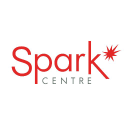Home » From Founder to Founder: Giving Back With a Lean Startup Approach
From Founder to Founder: Giving Back With a Lean Startup Approach

Chris Giantsopoulos knows entrepreneurship.
His first taste of entrepreneurial work ethic was as the son of immigrant parents who owned a restaurant. Running a restaurant appeared glamorous from the outside, but inside its walls, it was a tough business with long hours, little vacation and “a lot of washing dishes.” That environment provided a glimpse into business ownership, but for Chris, it also provided a canvas for idea generation, with several problems to solve and opportunities to improve consistently. When his dad struggled to manage the books manually, Chris wrote an accounting program for him that saved 80% of the time spent on accounting.
From there, Chris became known as “the idea guy,” embarking on small ventures with friends and family (some succeeded, some failed) and that eventually rolled into an entrepreneurial journey that took Chris from a leadership role at BMO to co-founding a fintech sports registration company, becoming a lean startup facilitator and then a startup advisor with Spark Centre.
We caught up with Chris Giantsopoulos to learn more about his startup journey and how that led him to guide lean startups down the right path to success today.
Before becoming a co-founder, you were a leader at BMO’s Institute for Learning. How did your role prepare you for launching your own company?
Because of my experience with my parent’s restaurant business and attempts at small ventures with family and friends, I already had an entrepreneurial mindset going into my role at BMO. I always knew that when the right idea came along, I would probably jump at it. BMO’s Institute for Learning was an innovative area of the organization. So I had opportunities to strengthen my intrapreneurial muscles and learn how to design and develop with customer-centricity, conduct usability testing and formalize customer research and feedback.
However, one of my biggest takeaways from BMO was the importance of good leadership. That sounds like a cliché, but good leaders set the tone, culture, work ethic and, inevitably, a company’s success. They can motivate employees in both the good times and, more importantly, the bad times. I learned the importance of emotional intelligence in leadership and how to use it to truly understand your employees — to hear them, understand them and value them. To this day, I live by the motto, “if you take good care of your team, they will take care of your company.”
While you were at BMO, the idea for your company was formed. Walk us through how that happened.
Outside of BMO, I constantly met with friends, looking for innovative ideas and problems to solve. For one particular meeting, one of my soon-to-be partners was late to attend because he had to wait in line for hours to register his kid for hockey and didn’t want to lose his spot. After quizzing him further, I realized that this was a problem that spanned all amateur sports. I can’t express the “eureka” feeling that came over me. It was at that moment that QuickEnrollment was born.
QuickEnrollment targeted Canadian amateur sports organizations like hockey, soccer and baseball. At the time, most youth organizations were either manually collecting registrations and fees from parents or using an online system that wasn’t customized to their organizational needs. This caused inefficiencies and wasted time and money. With QuickEnrollment, sports organizations could customize their forms (a big deal at the time) and collect the money safely and securely from parents. As an additional benefit, the organizations could customize their reports for accounting, marketing and volunteer management purposes.
By day, we worked full-time, and our evenings and weekends were spent researching, validating and programming. It was a difficult grind, but it soon paid off: We went national and eventually successfully exited the company.
What was a big lesson you learned from your challenges as a startup?
The biggest challenge, I think, happened around the second or third year, which I describe as “we were three months away from bankruptcy every three months.” I realized that if we were going to make it, we had to stop thinking about the potential for failure and focus our best selves on each of our tasks. This meant that the programmers must concentrate on the upgrades and stability of the system, the sales team on sales, the marketing team on marketing, the operations team on operations and the partners on how to get more investment. It worked. After a month, more contracts flowed in, then more, and by the end of our third year, we finally started to make a profit. The rest, thankfully, is history.
As an entrepreneur, you can never give in to your journey’s circumstances. You need to stay tenacious and positive. This is not to say that you should ignore reality. But you never really know how close you are to success or failure until you “play it through” with the best version of yourself and your team. This is the most difficult thing to do when facing failure, but you must bring your best self. You never know what’s around the corner.
What experience as a co-founder inspired you to coach other startups?
The culture within our partnership during those early days was to leverage each other’s experience, make decisions and move forward. Looking back, I would have leveraged the expertise of people outside of our team. We did a little of that, but not enough. We made so many mistakes that, in hindsight, could have been avoided had we had the guidance of an advisor in the industry or the benefit of one of the 17 Regional innovation centres across Ontario, like Spark Centre.
This may seem like another cliché, but there is nothing quite like being guided by someone who has been there before. They have scars, and they know what not to do. This isn’t to say that advisors are always right, but typically people with experience — those who have “been there and done that” — can often see quickly what pitfalls to avoid and what best practices to employ.
You’re an expert in the Lean Startup Approach. What is it, and why is it important?
The lean startup approach is one of the best practices entrepreneurs can employ. Quite simply, it helps to do two things: for one, it guards you as an entrepreneur to ensure you’re not spending time, money and resources building something that a target market doesn’t need (one reason a business fails). Second, validating the “pain point” and “problem” that your target market suffers ensures that when you solve it, you will give the customer incredible value & benefits they are willing to pay—it’s a win-win situation.
This approach involves “the problem interview”: directly interviewing your market and validating or invalidating “the problem/pain points” they have before you get too deep into designing and developing. This primary research, along with secondary online research about the industry, consumer or business, will help you understand your target market and the context, motivation, psychology and issues facing your customer. This will help ensure the basis of your business is designed around your “customer’s problem.” It will help you create clarity with your value proposition, sales and marketing messaging and with the customer-centric design of your solution. In the end, it will help increase the probability of your success.
Even if you’ve already developed your product, I suggest you go through this process. The goal is to identify your market segment(s) and better align yourself with the market so that sales become not necessarily easy, but easier. It’s pretty simple: no sales, no business.
“I know what it’s like to get that seemingly small piece of expert advice that turns everything around and gives you hope. I’ve always loved that feeling, and if I can help other entrepreneurs achieve that at some level, it’s rewarding.”
What made you want to become an Advisor at Spark Centre?
It was seven years ago when I first met Spark Centre. At the time, I was teaching entrepreneurial sessions across Ontario part-time through MaRS and met Spark Centre while conducting a session for their clients.
Throughout my entrepreneurial journey, I’ve always been grateful to those who selflessly gave me direction, advice and ideas to help me along. That small piece of advice often had a bigger impact than that person could have imagined. I know what it’s like to get that seemingly small piece of expert advice that turns everything around and gives you hope. I’ve always loved that feeling, and if I can help other entrepreneurs achieve that at some level, it’s rewarding. So when the opportunity came to advise, guide and coach entrepreneurs to enhance my current role, I jumped at it. It’s a great feeling to be able to give back. I’m very thankful for this role.
You like to quote H. Jackson Brown: “In the confrontation between the stream and the rock, the stream always wins, not by strength, but by perseverance.” What about this quote do you like so much?
In my experience as an entrepreneur and a coach for the last decade, this quote best describes what it’s like to be an entrepreneur. The rock represents the jagged struggles, anxieties and insecurities the entrepreneur takes on simply by choosing to become one. The ongoing stream represents their character, strength and tenacity to keep moving forward, regardless of the obstacles. Eventually, the stream finally overcomes the jagged rocks, smoothing them as the entrepreneur journeys toward their success
***
Spark Centre
https://sparkcentre.org
Helping innovative companies start, grow and succeed. Spark Commercialization and Innovation Centre is one of eighteen not-for-profit Regional Innovation Centres (RICs) that form part of the Ontario Network of Entrepreneurs (ONE). The centre works to improve competitiveness and visibility of Durham Region and Northumberland County as a world-class innovation cluster. Spark Centre works with clients to develop individualized plans for success. We connect start-ups to business and research networks, learning tools, business coaching, mentorship, and access to funding and investment.




